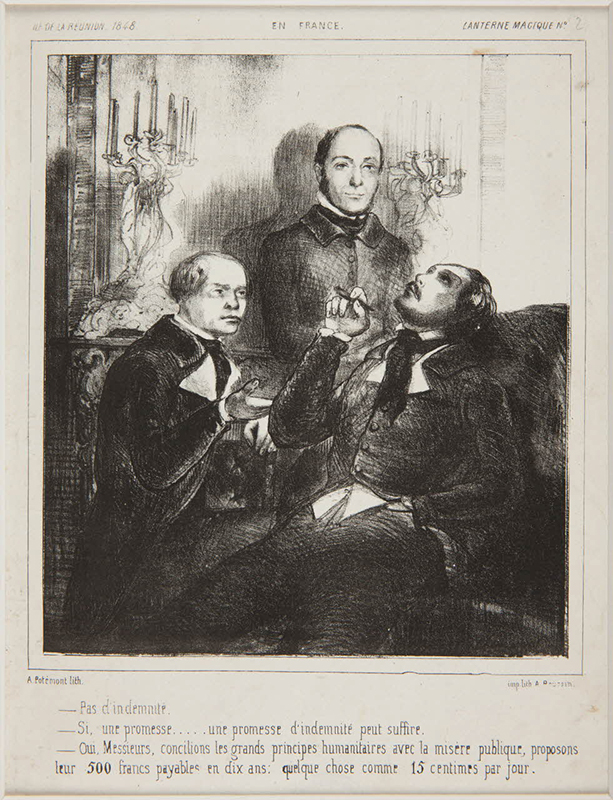
The compensation took the form of an annual allowance of 5 % for a capital of 120,000,000 francs. Reunion island received a total of 41,104,000 francs: the greatest proportion of this amount. To this was added a sum of 2,055,200 25 francs, granted immediately by the government. In accordance with article 7 of the law dated 1849, 1/8 of the annual allowance was siphoned off to create a lending and discount bank in each colony. However, only estate owners receiving compensation of over 1,000 francs were to pay this amount. As compensation, they became shareholders of the newly-created bank.
Should the settlers have been granted compensation following the abolition of slavery? On what basis? At the time, these questions were the object of debate. On 30th April 1849, the French parliament passed a law, more than one year after the act of emancipation.